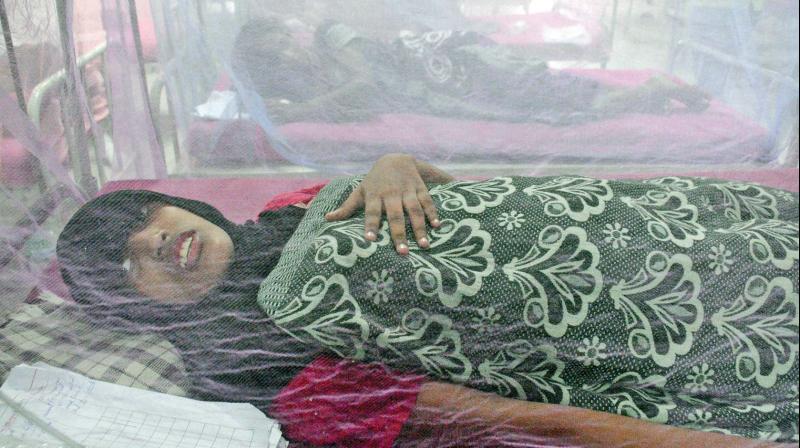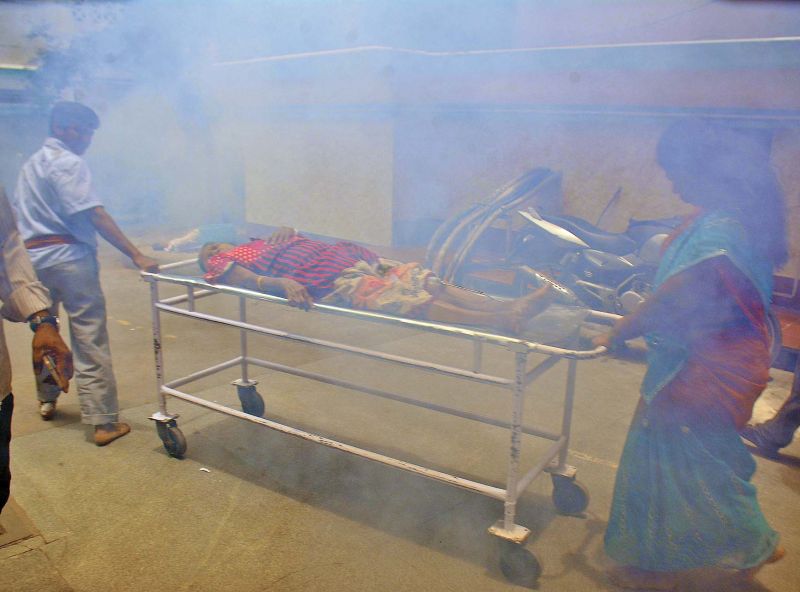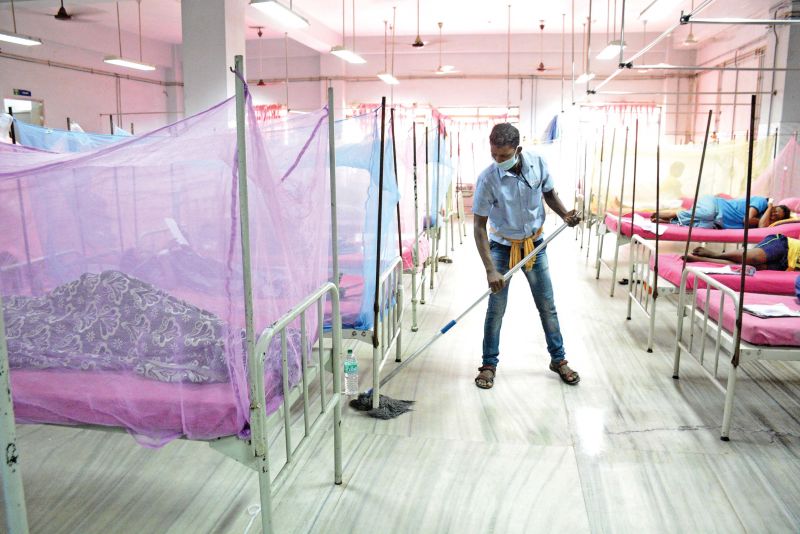Dengue breeds in North Chennai
Five new positive cases reported every day in city.

CHENNAI: Dengue cases have soared high in north Chennai with government hospitals reporting eight new cases in the past one week. Hospital authorities say that around 100 cases of “suspicious fever” have been reported from North Chennai, especially Vyasarpadi, Washermanpet, Royapuram and Mannadi daily.
Despite the efforts of civic authorities to prevent vector-borne diseases in the state, the number of people infected by dengue are surging with Tamil Nadu recording an additional 629 cases last month alone, according to National Vector Borne Diseases Control Programme.
Though Krishnagiri, Salem, Theni, Coimbatore, Kanyakumari, Virudhunagar, and Erode are the ones most affected, government hospital sources say that dengue cases have been on the rise in North Chennai comparatively.
“Though State Government has been monitoring dengue cases, most of the cases appear from North Chennai. As five new cases have been reported this week, we have alerted the Health department about it and are providing a daily report on their treatment. We get around 100 cases of fever every day and around five of them turn positive for dengue almost every day,” said Dr Ponnumbala Namasivayam, Dean, Government Stanley Medical College Hospital.
Doctors have expressed concern about the prevalence of dengue in children with 12 kids testing positive at Kilpauk Medical College, three at Stanley Government Medical College and two at Rajiv Gandhi Government General Hospital.
 Workers at the RGGGH fog the hospital premises as a patient is moved around on a stretcher. (Photo: DC)
Workers at the RGGGH fog the hospital premises as a patient is moved around on a stretcher. (Photo: DC)
Doctors attribute the surge in cases to water scarcity that has led to improper storage of water, stagnation, unhygienic conditions and monsoon infections.
When contacted, corporation zonal officers, who admitting the rise in the number of cases in North Chennai, said, “Officials are coordinating cleanliness campaigns in the locality to avoid conditions that provide breeding ground for mosquitoes. Source reduction and vector identification are being done regularly after a case of dengue is reported by the government hospitals.”
“To monitor the treatment given to the patients, health minister had visited the government hospitals and met them,” he added.
4 hospitalised cops discharged, three others admitted
Four policemen attached to the city police admitted to government hospital on suspicion of being affected by dengue were discharged from the hospital on Thursday, police said. The policemen- Parthiban (27) of Armed Reserve, Shibu (35), a head constable with the Anti vice squad, Sakthivel (28) with the Tamil Nadu Special Police (TSP) battalion and Yogaraj (27) of Armed Reserve were admitted to the Rajiv Gandhi Government General Hospital (RGGGH) last Friday (July 29) triggering fear of dengue among the city police. The city police issued a statement saying that the two policemen are under medical supervision and only after the test results, would the cause of their illness be known. Meanwhile, after five days of treatment at the special ward- ward no.226, the policemen were discharged from the hospital on Thursday, police said.
 Staff at the special ward for dengue at RGGGH wears a safety mask while cleaning the room. (Photo: DC)
Staff at the special ward for dengue at RGGGH wears a safety mask while cleaning the room. (Photo: DC)
However, three other uniformed personnel, Pradhan (28) and Lokeshwara Rao (36)-both attached to a Central Armed Police Force (CAPF) unit and a police woman, Arulmani (36) attached to the TSP batallion were admitted to government hospitals after complaints of high fever, police sources said.
Platelets demand rises with dengue
With a surge in the number of dengue cases, demand for platelets have increased at the blood banks. Though government hospitals are organising special blood donation camps to meet the needs of human blood components, blood banks are feared to lack the supply of adequate platelets.
Doctors say that dengue virus damages platelets soon after it affects the person, which decreases the platelet counts by a considerable amount. It usually requires at least four to five persons to donate enough blood to increase the platelet count to the desired level if it goes down by 20,000-30,000.
“Platelets from one unit of blood raises the count by 5,000-10,000 and the desired rise in the count of a patient is 50,000. In order to increase the platelet count, we carry out blood transfusion of around two or three units. The demand is to further increase if dengue cases continue to rise,” says K. Vasanthamani, dean, Kilpauk Medical College Hospital.
Increased blood collection to meet platelets needed might lead to wastage of other blood components that includes RBCs and plasma. Therefore, Government hospital blood banks are using special machines using the process of hemapheresis for segregation of blood components to meet the high demands of platelets among dengue patients. The donor of platelets alone can donate twice a week, whereas the whole blood donor has to wait for three months.
“We are able to meet the demand for platelets in Stanley Medical College. If the need arises, we are providing it to other hospitals depending on demand. Medical officers and health workers are organising blood donation camps in colleges and offices to meet the demands of blood constituents,” said Dr Ponnumbala Namasivayam, dean, Government Stanley Medical College Hospital.

